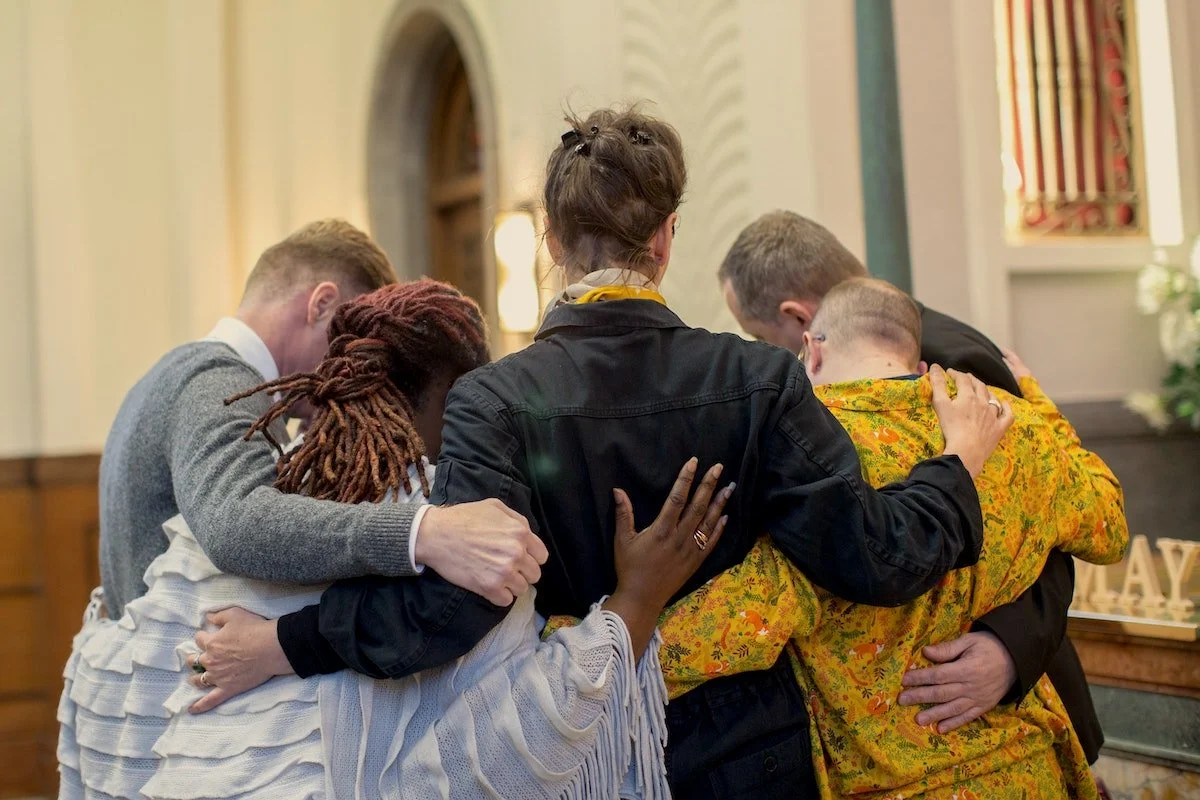Las medidas que se han tomado para lidiar con el contagio han obligado a los pastores a incursionar en la predicación online. Dos o tres semanas después del inicio de la cuarentena, algunos pastores comenzaron a reportar que la asistencia a su iglesia se había cuadruplicado o quintuplicado.
La explicación es que, si antes una congregación tenía 200 personas en el culto principal, ahora, tiene 1,000 o 1,200 personas en el culto online, algunos también reportaron que estaban alcanzando gente fuera del país. La conclusión es que sus iglesias habían crecido y se habían convertido en una iglesia virtual. Pero, un momento, vamos a digerir esto un poco más despacio.
El calificativo virtual viene del latín virtus y su significado original es fuerza o virtud para producir un efecto. Sin embargo, hoy en día ese término está asociado a la tecnología y se refiere a lo que tiene existencia aparente en oposición a lo real. Entonces de acuerdo con ese significado, o connotación, la iglesia virtual es una apariencia en oposición a la iglesia real.
No creo que debamos estar contentos con una iglesia aparente, cuando la iglesia real está esparcida y los congregantes son una minoría temerosa. Si antes del Covid-19 nuestras iglesias no se parecían mucho a las iglesias del Nuevo Testamento, ¿porque nos alegramos de tener una iglesia en apariencia en contraste con una iglesia real?
La iglesia virtual es otro nombre para lo que ya se conocía como la iglesia del aire que surgió con la llegada de la radio y la televisión. Cuando los pastores comenzaron a transmitir sus cultos por radio y televisión, un grupo de personas comenzó a sintonizarse para oír o ver el culto. Entonces, los tele-evangelistas comenzaron a pedir contribuciones, a ofrecer sus sermones grabados, o en forma de libro a la teleaudiencia y a hablar de la iglesia del aire.
No estoy en contra de los programas cristianos radiales, ni de televisión, ni mucho menos de la predicación online, al contrario, como dice el apóstol Pablo, lo importante de todo esto es que el evangelio está siendo predicado por cualquier motivo y por cualquier medio. Pero no nos debemos engañar al entusiasmarnos con una iglesia aparente por tres razones fundamentales: Por causa del significado del término, por causa de la naturaleza de la membrecía y por causa de la falta de relación:
1. Ya mencioné que el término virtual significa aparente, no real. En verdad es mucho lo que no sabemos de los que se conectan. No sabemos si mientras el servicio transcurre está comiendo, durmiendo o distraídos con otro asunto. Tampoco sabemos si se desconecta después de uno o dos minutos, recuerde que con un clic ya está en otra galaxia. Algunas de estas personas pertenecen a otras congregaciones, pero les gusta oír sermones de diferentes predicadores. Una amiga de mi esposa le dijo que el domingo anterior había escuchado cuatro sermones. Podría ser que le estamos predicando lo mismo a los mismos todas las veces.
2. La naturaleza de la iglesia no nos permite hablar de iglesia virtual. Por ejemplo, ni el apóstol Pedro ni Pablo consideraron parte de la iglesia a los que sólo oían el evangelio. Los pertenecientes a las iglesias del Nuevo Testamento eran personas convertidas y bautizadas, de carne y hueso. La pantalla de la computadora, o del teléfono no hace a nadie miembro de una iglesia local, ni mucho menos discípulo de Cristo
3. La relación con la audiencia virtual es muy débil y escasa. Es una relación que comienza y termina con un clic. Tampoco sabemos sus necesidades, ni sus nombres, no podemos ir a sus casas, ni pedirles un favor urgente en caso de necesidad. Y el compromiso de esta audiencia con su iglesia es menos que el mínimo.
Entonces, ¿Qué sugiero?
Primero, aunque le parezca raro, le recomiendo altamente que siga transmitiendo online, incluso le animo a que mejore cada vez más la transmisión, pero no se engañe con la palabra virtual, recuerde que significa aparente. Recuerde que la tecnología crea una realidad aparente, pero luego tenemos que aterrizar y volver a la realidad.
Segundo, sugiero que en lugar de alegrarse y endulzar la situación con la “iglesia virtual”, se concentre en la iglesia real que está esparcida, temerosa, y dolida por la pérdida de amigos, o familiares.
Tercero, pídale al Señor que le ilumine como ministrar a su rebaño porque las ovejas sin dirección se extravían muy fácil. Cuando la cuarentena termine, es posible que algunas ovejas reales ya no estén en su rebaño.
Cuarto, cuando hable de este asunto, hágalo con propiedad. Diga, que aparentemente el culto tiene una audiencia más numerosa y en alguna manera eso es bueno, pero que, en verdad, necesitamos estar más pendientes los unos de los otros y seguir perseverando.
El consultante Campo Londoño tiene un trasfondo en ministerio pastoral, desarrollo de liderazgo, y comunicaciones. El trae a UBA la experiencia de haber guiado a su Iglesia, IB Horeb, a través de varios periodos de crecimiento hasta el punto de tener su propio edificio, libre de deudas y haber guiado a 16 hermanos a plantar la Iglesia Bautista Renovación.
____________
VIRTUAL CHURCH
The measures that have been taken to deal with the contagion of the COVID-19 have forced pastors to dabble in online preaching. Two to three weeks after the quarantine began, many pastors began reporting that the numbers of those watching their services had quadrupled or quintupled.
If a congregation had 200 people in the main service before, it was up to 1,000 or 1,200 people in the online service. Some also reported that they were reaching people outside the country. The bottom line is that their churches had grown into a virtual church. But wait, let's digest this a little slower.
The adjective “virtual” comes from the Latin virtus, which originally meant a force or virtue to produce an effect. However, today that term is associated with technology and refers to what has apparent existence as opposed to what is real. So according to that meaning or connotation, the virtual church might be more about an appearance as opposed to the real church.
I don't think we should be happy with a merely apparent church when the real church has been scattered by the pandemic and the congregants are a fearful minority. If before COVID-19 our churches did not look much like New Testament churches, why are we glad to have a church in appearance in contrast to a real church?
The virtual church is another name for what was already known as the “ church of the air” that emerged with the arrival of radio and television. When the pastors began broadcasting their services on radio and television, a group of people began to tune in to hear or watch the service. Then, the televangelists began to ask for contributions, to offer recordings and books of their sermons, and to talk about their virtual church.
I am not against radio programs, nor television, much less online preaching. On the contrary, as the apostle Paul says, the important thing about all this is that the gospel is being preached for any reason and by any means (Philippians 1:18). But we should not be fooled into getting excited about an apparent church for three fundamental reasons: Because of the meaning of the term, because of the nature of the membership, and because of the lack of relationship:
1. I already mentioned that the term virtual means apparent—not real. In truth, we do not know much about those who tune in. We do not know if while the service is running watchers are eating, sleeping, or distracted with another matter. We also do not know if it disconnects after a minute or two, remember that with one click (They)you are already in another galaxy.
Some of these people belong to other congregations, but they like to hear sermons from different preachers. A friend of my wife told her that she had heard four sermons the previous Sunday. It could be that we are preaching the same thing to them every time.
2. The nature of the church does not allow us to speak of a virtual church. For example, neither the Apostle Peter nor Paul considered those who only heard the gospel part of the church. Those belonging to the New Testament churches were converted and baptized people—made of flesh and blood. The computer or telephone screen does not make anyone a member of a church, much less a disciple of Christ.
3. The relationship with the virtual audience is very weak and scarce. These relationships begin and end with a click. We don’t know their needs or their names; we cannot go to their homes or ask them for an urgent favor in case of need. And this audience's commitment to your church is less than minimal.
So what do I suggest?
First, although it may seem strange to you, I highly recommend that you continue to broadcast online, I even encourage you to improve the transmission more and more. But do not be fooled by the word virtual. Remember that it means apparent. Remember that technology creates an apparent reality, but we still have to land and go back to reality.
Second, I suggest that instead of sugarcoating the situation with the “virtual church,” you focus on the real church that is scattered, fearful, and hurt by the loss of friends, or family.
Third, ask the Lord to enlighten you on how to minister to your flock because directionless sheep get lost so easily. When the quarantine ends, some (real) royal sheep may no longer be in your flock.
Fourth, when you do discuss this matter, do so properly. Say that apparently the worship has a larger audience, and in some ways, that is good. But really, we need to be more aware of each other and continue to persevere.
Campo Londoño is a UBA ChurchConsultant with a background in pastoral ministry, leadership development, and communications. He brings to UBA the experience of having planted his own church, Iglesia Bautista Horeb, where he continues to serve as Senior Pastor, and of having led the church through several stages of growth to the ownership of its current building.
We’ll send one succinct weekly email
with the best news, events, and info
for churches in the Houston area
Photo by Glenn Carstens-Peters on Unsplash




















La fuerza para continuar el camino no proviene de nuestros propios esfuerzos, sino del descanso que encontramos en Él.